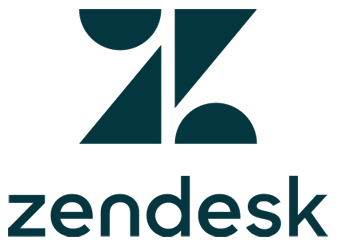
Zendesk, a customer service software company, strives to build better customer relationships through its innovative tech solutions. With a focus on simplicity, they enable businesses to engage with customers across multiple channels, providing support and insights to enhance the overall customer experience.
COMPANY LINKS
TAGS
- CEI |
- DEI |
- ESG |
- Open Secrets |
- Pride Sponsor
Updated 1 year ago
How woke is Zendesk?
Introduction
Zendesk is a technology leader that emphasises diversity, equity, and inclusion (DEI) initiatives. However, a closer look reveals significant ties to progressive agendas, raising questions about the balance between corporate values and political activism.
Financial Contributions to Progressive Causes
Zendesk actively funds initiatives supporting social justice and climate change activism. The Zendesk Foundation’s “Tech for Good Impact Awards” exemplifies its commitment to these causes, including financial contributions to organisations advocating for equity and systemic change. As noted by the company, “Through our Tech for Good Impact Awards, Zendesk has provided over $1 million to organisations driving social change, focusing on systemic inequities and climate challenges.”
While these initiatives may resonate with some, they raise concerns about whether shareholder interests are secondary to political and social ideologies.
Prioritisation of DEI Policies
Zendesk’s DEI policies are prominently featured on its diversity and inclusion page, showcasing hiring practices focused on identity-based quotas rather than purely merit-based evaluations. The company boasts its inclusion in the 2022 Disability Equality Index, underscoring efforts to create an inclusive workplace for employees of all abilities. “At Zendesk, we believe diversity fuels innovation. Our 2022 Disability Equality Index score highlights our efforts to create an inclusive workplace for employees of all abilities,” Zendesk stated on its DEI blog.
However, questions linger regarding the trade-offs in prioritising identity over qualifications and its long-term impacts on the company’s operational effectiveness.
Mandatory Training Sessions
While explicit evidence of mandatory sessions, such as unconscious bias or critical race theory training, is not immediately apparent, Zendesk’s language strongly suggests a workplace culture influenced by these ideologies. Greater transparency is needed regarding the exact nature of its training programs, particularly given the company’s emphasis on “equity and social responsibility” throughout its operations.
Support for LGBTQ+ Initiatives
Zendesk takes significant steps to align with LGBTQ+ causes, frequently highlighting employee inclusion stories and Pride Month celebrations on its platforms. The company emphasises that “Our Pride Month celebrations are a reminder that inclusion doesn’t end in June. It’s a year-round commitment to creating a workplace where everyone feels valued and heard.”
These efforts demonstrate Zendesk’s dedication to inclusivity, alienating employees and customers who hold more traditional views and creating potential divisions within its audience.
Marketing and Branding
Zendesk’s branding is steeped in social justice rhetoric. Campaigns like “Tech for Good” and blogs promoting equity align with progressive narratives. The company proudly declares, “We are proud to lead campaigns beyond service and technology to champion equity and social responsibility in every corner of our organisation.” While effective in engaging socially conscious consumers, such messaging alienates those seeking neutrality from service providers.
Conclusion
Zendesk’s deep entrenchment in progressive causes positions it as a leader in the corporate adoption of social justice initiatives. However, this approach risks alienating stakeholders with differing views, potentially impacting its long-term brand perception. Neutrality, rather than overt activism, may better serve its diverse customer base.
Our rating is based
